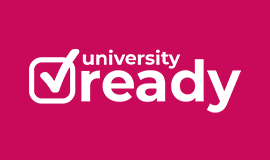The rapid development of quantum information theory has fundamentally changed the concept of computing. While conventional computers work on information encoded in bits as two-state (0/1) choices, quantum computers use information units (qubits) with a much larger set of possible states. The “quantum advantage” over conventional computers lies exactly on this extension, the mathematical description of which goes beyond the Boolean logic underlying the conventional computation model, requiring a combination of algebraic structures and probability theory.
Currently, major technology companies, including Google and IBM, are investing in quantum computing, with the expectation that it will in the near future become a part of mainstream computing industry. Consequently, advanced mathematical skills will be an increasingly valuable asset in the job market of this area.
This webinar introduces, in simple terms, the basic mathematical principles needed for understanding how quantum computing utilises the set of available computational states, the two main quantum features being superposition and quantum entanglement.
Current quantum technology applications is also discussed.
'The Challenges of 2030' Webinar Series
‘The Challenges of 2030’, views the problems of the not so distant future through the lens of a variety of different subjects such as Geography, History, Theatre & Performance, Business and Criminology.
In conjunction with Channel Talent, Aberystwyth University aim to give you an insight into the teaching methods and research of University lecturers whilst discussing the problems that the next generation of students will be facing in the coming decade.
Read more on the Aberystwyth University website.

This resource was provided by Aberystwyth University and is part of the University Ready hub.
Find more resources like this on the hub homepage.

Rate and Review
Rate this video
Review this video
Log into OpenLearn to leave reviews and join in the conversation.
Video reviews